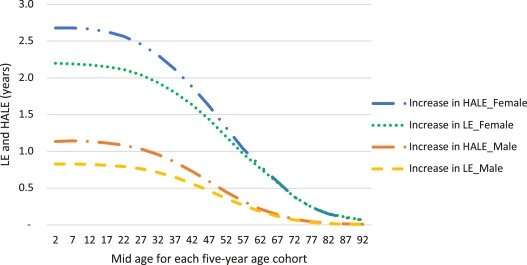Kenyan BMI study could help influence global health policy

Lowering body mass index (BMI) could potentially save millions of lives globally by preventing non-communicable diseases new Griffith University research shows.
In a study published in eClinicalMedicine, researchers from the School of Medicine and Dentistry modeled 27 obesity-related diseases and assessed the potential health impact of BMI changes in the 2019 Kenyan adult population over their remaining lifetime.
They found elimination of high BMI could save about 83.5 million health-adjusted life years and increase life expectancy by 2.3 years for women and 1.1 years for men.
"Over the next 25 years, unless action is taken, we expect that high BMI will cause 7.4 million cases of disease and over half a million deaths in Kenya," said lead researcher and Ph.D. candidate Mary Wanjau.
"This has implications for global health policy because obesity and chronic non-communicable diseases such as heart disease and diabetes are often seen as health challenges for high-income countries but now 80% of the NCD burden is in low and middle-income countries like Kenya."
The study found that lowering BMI could prevent up to 1.6 million new cases of type 2 diabetes, 1.3 million cases of cardiovascular disease, 850,000 cases of chronic kidney disease and 56,000 cancer cases.
Study co-author Professor Lennert Veerman said the policy response to tackle the risk factors of NCDs did not get the priority it warranted and there was a low level of awareness.
He said if Kenyans lowered their BMI, by 2044 an estimated 867,664 cases of musculoskeletal disease could be prevented.
"Knowing how much of the body mass-related NCD burden in Kenya can potentially be avoided may empower policymakers everywhere to prioritize prevention and control of obesity alongside responses to chronic communicable diseases."'
More information: Mary Njeri Wanjau et al, The avoidable disease burden associated with overweight and obesity in Kenya: A modelling study, eClinicalMedicine (2022). DOI: 10.1016/j.eclinm.2022.101522




















